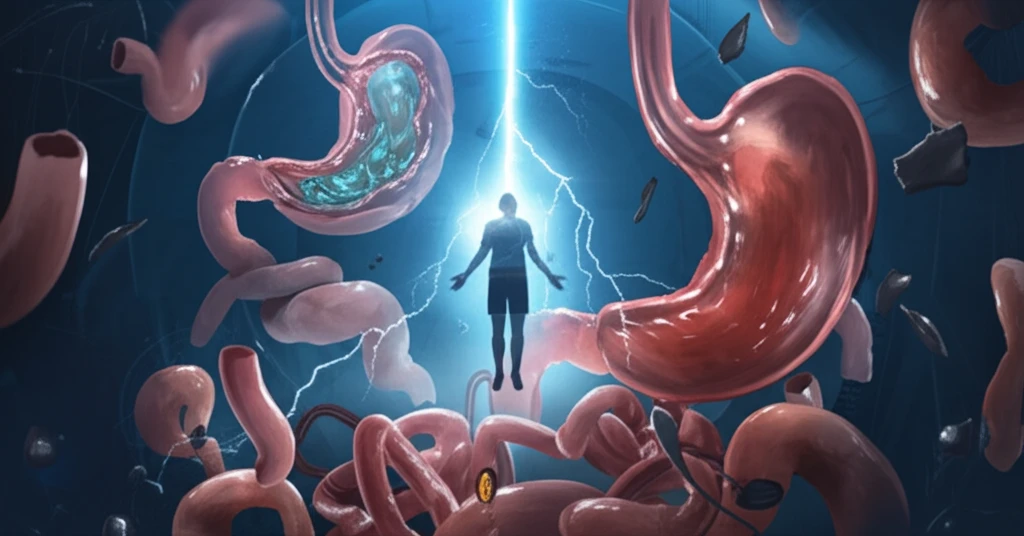
Stomach Woes? How Argon Plasma Coagulation Offers Hope for Portal Hypertensive Gastropathy
"Discover the innovative endoscopic treatment offering relief from chronic gastrointestinal blood loss and iron deficiency anemia linked to portal hypertension."
Portal hypertensive gastropathy (PHG) is a common complication of liver cirrhosis, leading to chronic gastrointestinal bleeding and anemia. Diagnosed via endoscopy, PHG presents as changes in the stomach lining due to increased pressure in the portal vein. For many, this condition significantly impacts their quality of life, leading to fatigue, weakness, and other anemia-related symptoms.
Traditionally, treatments for PHG have included medications like non-selective beta-blockers to reduce portal pressure and manage bleeding. However, a newer approach, Argon Plasma Coagulation (APC), has emerged as a promising alternative. APC is an endoscopic technique that uses argon gas to deliver an electrical current, coagulating the affected areas in the stomach to stop bleeding.
A recent study investigated the effectiveness of APC compared to beta-blockers in treating chronic blood loss and iron deficiency anemia in patients with severe PHG. This article delves into the findings of this study, offering insights into how APC could revolutionize the management of PHG and improve patient outcomes.
APC vs. Beta-Blockers: Which Treatment Reigns Supreme for PHG?

The study, which included 112 cirrhotic patients with severe PHG, compared two groups: one treated with APC sessions (Group A) and the other with oral propranolol, a beta-blocker (Group B). Researchers assessed the response to treatment by monitoring changes in hemoglobin levels and iron parameters over three months.
- Hemoglobin Levels: Group A (APC) showed a highly significant increase in hemoglobin levels compared to Group B (beta-blockers).
- Iron Parameters: APC led to a more substantial increase in serum iron and serum ferritin levels, along with a greater decrease in TIBC (Total Iron Binding Capacity), indicating improved iron storage and utilization.
- Overall Improvement: APC demonstrated a better overall improvement in anemia and iron deficiency compared to beta-blockers.
Looking Ahead: APC as a Promising Therapy
The study's findings highlight APC as a valuable option for managing chronic blood loss associated with portal hypertension. While beta-blockers remain a standard treatment, APC may offer a more effective solution for improving hemoglobin levels and addressing iron deficiency anemia. More research is always valuable, this study gives those struggling with PHG more treatment options.
